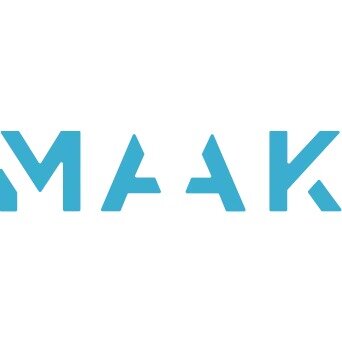Best Acquisition / Leveraged Finance Lawyers in Netherlands
Share your needs with us, get contacted by law firms.
Free. Takes 2 min.
Or refine your search by selecting a city:
List of the best lawyers in Netherlands
About Acquisition / Leveraged Finance Law in Netherlands
Acquisition and leveraged finance law in the Netherlands pertains to the legal frameworks and regulations governing the funding of corporate acquisitions, most notably using significant amounts of borrowed money or leveraging the assets of the target company. Such transactions are commonly seen in private equity deals, management buyouts, and mergers. The Netherlands, being one of Europe's key financial hubs, employs a sophisticated and business-friendly legal system designed to facilitate complex financing structures while ensuring the stability of the broader financial market.
Why You May Need a Lawyer
Legal counsel in acquisition and leveraged finance matters is crucial due to the complexity and high value of typical transactions. Common scenarios that necessitate legal assistance include:
- Structuring and negotiating acquisition finance deals
- Conducting legal due diligence on target companies
- Drafting and reviewing loan and security documentation
- Ensuring compliance with local and European regulations
- Advising on corporate governance issues post-acquisition
- Managing potential disputes or enforcement actions
- Protecting the interests of lenders, borrowers, or investors
Given that each transaction may involve multiple jurisdictions, complex collateral structures, and varying stakeholder interests, obtaining specialized legal advice significantly reduces risks and ensures smooth execution.
Local Laws Overview
Dutch acquisition and leveraged finance transactions are shaped by several key legal regimes:
- Civil Code: The Dutch Civil Code provides the basis for contract and property law, which dictate how security interests can be created and enforced.
- Financial Supervision Act (Wft): This act oversees the oversight of financial institutions and market conduct, with rules on who can provide certain types of financing and how, especially for regulated lenders.
- Corporate Law: The rules governing corporate governance, limitations on financial assistance by Dutch companies, and directors' duties during leveraged buyouts are important.
- Bankruptcy Law: Dutch insolvency law regulates creditor rights, restructuring, and enforcement procedures, which can impact the risk allocation in finance documents.
- Cross-Border Rules: The Netherlands follows EU law on financial services, anti-money laundering, and data protection, shaping transactional compliance obligations.
Understanding these legal aspects helps all parties avoid pitfalls and structure effective, enforceable finance arrangements.
Frequently Asked Questions
What is leveraged finance?
Leveraged finance involves raising capital for acquisitions using substantial debt, often secured by the assets or future cash flows of the target company.
Is it legal for Dutch companies to provide financial assistance for their own acquisition?
There are strict rules, known as financial assistance restrictions, limiting a Dutch company from providing direct or indirect assistance (such as loans, guarantees, or security) for the purchase of its own shares, especially concerning Dutch public limited liability companies (NVs).
Are there specific licensing requirements for lenders in the Netherlands?
Lenders operating within the Netherlands, especially those offering credit to the public, may require a license from the Dutch Authority for the Financial Markets (AFM) unless specific exemptions apply.
How are security interests created and enforced in the Netherlands?
Security can be granted by means of mortgages (on real property) or pledges (on movable assets and receivables). Enforcement follows specific statutory procedures and may be subject to court oversight during insolvency.
Can Dutch law govern cross-border acquisition finance deals?
Yes, Dutch law is commonly chosen when the target or major assets are in the Netherlands. However, agreements may also be governed by foreign law, particularly English law, due to its commercial flexibility.
What due diligence is usually required?
Legal due diligence typically covers the target's corporate structure, existing financing, material contracts, employment matters, litigation risks, and regulatory compliance.
How does Dutch insolvency law affect leveraged finance transactions?
Insolvency rules determine the enforceability of security, the ranking and rights of creditors, and potential liability of directors. This risk assessment is essential when structuring deals.
Are there caps on interest rates or costs of borrowing?
While there is no statutory cap on interest rates for corporate lending, excessive rates may be challenged under general principles of reasonableness and fairness or usury laws for consumers.
Are there anti-money laundering obligations?
Yes, all parties involved, especially financial institutions, must comply with anti-money laundering (AML) and know-your-customer (KYC) requirements under Dutch law and EU directives.
Do acquisition finance transactions need to be registered?
Certain security interests, such as mortgages and disclosed pledges, must be registered with the Dutch Land Registry or relevant pledge registries to be effective against third parties.
Additional Resources
If you require more information or support, consider consulting the following resources and organizations:
- Dutch Authority for the Financial Markets (AFM) - Regulator for financial services and conduct
- Dutch Central Bank (DNB) - Regulatory body for monetary policy and bank supervision
- Dutch Bar Association (Nederlandse Orde van Advocaten) - Directory of legal professionals
- Netherlands Enterprise Agency (RVO) - Support for business setup and compliance
- Royal Netherlands Notarial Association - Guidance on legal formalities for security documents
Next Steps
If you are considering or involved in an acquisition or leveraged finance transaction in the Netherlands:
- Engage a lawyer specializing in cross-border and Dutch acquisition finance. Look for professionals with a track record in structured finance deals.
- Collect all pertinent documents, including details of the transaction, company financials, organizational structure, and any preliminary agreements.
- Schedule an initial consultation to identify legal risks and clarify the process suited to your circumstances.
- Discuss fee structures and timelines before proceeding, as acquisition and finance deals can be complex and require a tailored approach.
- Investigate whether you may need input from Dutch notaries or regulatory authorities during the process.
Prompt legal advice will help ensure your transaction is legally sound, efficient, and compliant with Dutch law.
Lawzana helps you find the best lawyers and law firms in Netherlands through a curated and pre-screened list of qualified legal professionals. Our platform offers rankings and detailed profiles of attorneys and law firms, allowing you to compare based on practice areas, including Acquisition / Leveraged Finance, experience, and client feedback.
Each profile includes a description of the firm's areas of practice, client reviews, team members and partners, year of establishment, spoken languages, office locations, contact information, social media presence, and any published articles or resources. Most firms on our platform speak English and are experienced in both local and international legal matters.
Get a quote from top-rated law firms in Netherlands — quickly, securely, and without unnecessary hassle.
Disclaimer:
The information provided on this page is for general informational purposes only and does not constitute legal advice. While we strive to ensure the accuracy and relevance of the content, legal information may change over time, and interpretations of the law can vary. You should always consult with a qualified legal professional for advice specific to your situation.
We disclaim all liability for actions taken or not taken based on the content of this page. If you believe any information is incorrect or outdated, please contact us, and we will review and update it where appropriate.
Browse acquisition / leveraged finance law firms by city in Netherlands
Refine your search by selecting a city.















